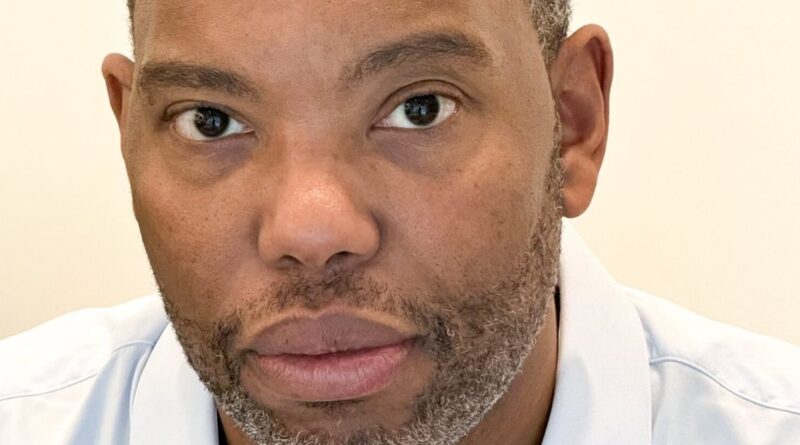Ta-Nehisi Coates discusses latest book ‘The Message’
In his latest book, “The Message,” award-winning author Ta-Nehisi Coates writes that “novels, memoirs, paintings, sculptures, statues, monuments, films, miniseries, advertisements, and journalism all order our reality. … The Arts Tell US What is Possible and What is not, Because, Among Other Things, Hey Tell Us Who Is Human and Who Is Not. IT URGES READERS TO CONSIDER THEIR OWN PERSPECTIVES, PREJUDICES AND BIASS RELATED TO IMPORTANT ISSUES: Segregation, Censorship, National Myths and More. Book The Message
The Author is No Stranger to Challenging the Status Quo with Hi Work. One Section of “The Message” focuses on an attempt to Keep Coates’ Work in a South Carolina School’s Carriculum, While The Section on Israel and the Palestinian Territories LED CBS in SeptemberS
“The Book is Essential Local Nationalism, and (in the South) About A Particular Kind of Chauvinistic Nationalism,” Coates Said Ahead Ahead of A Feb. 18 Event with Seattle Arts & Lectures. “Nationalism can Blind a Community. IT can Blind People. ”
Dead Stories that Serve People whose aim is nothing short of a Dead World,” Coates Writes. Asked WHY Such Stories are pervasive, The Author Said, “I Think It Takes A Lot of Work To Think. It is a much easier world to have these ‘Perfect’ Stories. ”
But Coates Suggests We’re Now Living in An era Where People Must Question and Confront Their Beliefs.
“We’ve Had 20 Years of People Saying, ‘America’s Fine,’ He Said. IT’s All Over Us,” Coates added. He Also Unpacks Stories Related to the Origins of His Name and The Story of His Ancestors. One Collective Story Is That Senegal Was An “Origin Point for Black America… An Origin Imagined and Dreamed Up To Fill An Emptiness of A People Told My Came From Nothing.”
In the Book, Coates Describes His Emotion Visit to The Island of Gorée, Where He Confronts – And Lets Go of – This Origin Myth. Coates Said It Took Him A Long Time to Go to Senegal Because He Knew It’D Be a Difficult Journey. “You have to confront the source of the mythmaking,” Coates Said. He admits that Facing Such Myths Was Also Liberation.
“I Feel Like I Got Sometting That Was a Little Bit More Grounded – Like On My Last Night, WHEN I WUS SITTING THESE WITH FOLKS WHOSE ANCESTRY I Share,” Coates Said. “They Were Talking About Various Strugles, and It Was Like Talking to Long-Lost Couusins.”
Coates Said This Community Effort to Oppose Censorship “Was Invigorating. IT WAS ONE OF THESE THINGS WHERE YOU REALIZE, this isn’t about you. There are People who Put Their Jobs on the Line, Feeding Their Families on the Line, and Their Wealth on the Line. IT WAS Deeply Empowering. ”
In South Carolina, Coates Notes How A Person’s Physical Environment Can Help Shape Their Beliefs. The Role of Historical Monuments in Shaping Perceptions is a Thread That Continues Into the Final Section of “The Message,” Which Covers the Relationship Between The Palestinian Territors and Israel. Of the Latter Nation, Coates Writes That “Every Expansionist Power Needs A Good Story to Justify Its Plunder.” He argues that of David is one Example of Israel Using History to Justify Seizing Palestinian Land.
“I Think The Moment We Root Our Worth in Castes and Kingdoms and Civilizations,” Coates Said, “We have already Lost.” In Witnessing Enforced Segregation, Coates Recalls His Own History. Clearly and Directly Calls for a Two-Tier Society. ”
Coates Said Speaking Up on the Conflict Was a Moral Imperative.



